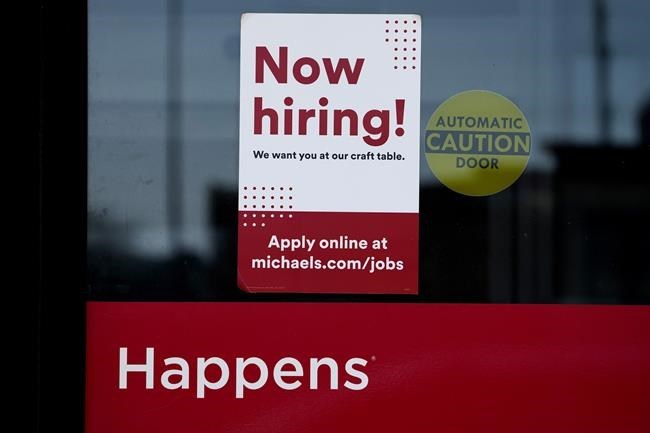The number of Americans applying for unemployment benefits remained relatively elevated last week, potentially another signal that Federal Reserve rate hikes are beginning to cool a surprisingly resilient labor market.
U.S. applications for jobless claims were 264,000 for the week ending June 17, the same as the previous week's revised number, the Labor Department reported Thursday. That's slightly more than analysts were expecting. The claims numbers for the past two weeks are the highest since October of 2021.
The four-week moving average of claims, which smooths out some of the week-to-week volatility, rose by 8,500 to 255,750. That’s the highest level since November of 2021.
Jobless claims in the past three weeks have pushed closer to 300,000 after mostly being in the high 100,000 to low 200,000 range since the fall of 2021. But that's likely not enough for Fed officials, who have said in the past that the unemployment rate needs to rise well past 4% to bring inflation down.
Labor analysts are reticent to take the recent rise in benefit applications at face value after fraudulent claims in some states elevated numbers for a few weeks this spring. The fact that continuing claims fell after three weeks of higher applications also raised eyebrows. But if unemployment claims remain at or around 260,000, it could point to a notable cooling of the labor market.
“Overall, the pace of claims is accelerating slightly higher, and most indications suggest this time could prove more lasting than earlier in the year when fraud in some states gave us a false indication of a resurgence in claims,” Contingent Macro Advisors wrote in a note to clients.
The labor market remains broadly healthy with the U.S. economy adding jobs at a furious pace since more than 20 million jobs vanished when the pandemic struck in the spring of 2020. Americans have enjoyed unusual job security, despite the Federal Reserve’s aggressive campaign to cool the economy and labor market in its attempt to extinguish persistent inflation not seen since the early 1980s.
Last week, Fed officials chose not to increase the central bank’s benchmark borrowing rate for the first time in 15 months, though some said they expect to add another half-point to rates by the end of the year. Fed Chair Jerome Powell reiterated that likelihood in testimony to Congress on Wednesday.
The rate hikes have slowly helped to suppress inflation, though perhaps not as quickly as intended. The labor market has remained unusually strong throughout the more than year-long rate hike campaign designed to cool it.
U.S. employers added a surprising 339,000 jobs last month, well above expectations, painting a mostly encouraging picture of the job market, even as the unemployment rate rose to 3.7%. In April, employers posted 10.1 million job openings, up from 9.7 million in March and the most since January. Economists had expected vacancies to decline.
There are other signs that the Fed’s policies are taking hold. The U.S. economy grew at a lackluster 1.3% annual rate from January through March as businesses wary of an economic slowdown trimmed their inventories. That’s a slight upgrade from its initial growth estimate of 1.1%.
The manufacturing sector has been contracting and three bank failures have been blamed in part on higher interest rates.
Though the labor market remains strong, there have been a number high-profile layoffs recently, mostly in the technology sector, where many companies say they hired too aggressively during the pandemic. IBM, Microsoft, Salesforce, Twitter, Lyft, LinkedIn, Spotify and DoorDash have all announced layoffs in recent months. Amazon and Facebook parent Meta have each announced two sets of job cuts since November.
Outside the tech sector, McDonald’s, Morgan Stanley and 3M have also recently announced layoffs.
Overall, 1.76 million people were collecting unemployment benefits the week that ended June 10, about 13,000 less than the previous week.
Matt Ott, The Associated Press


